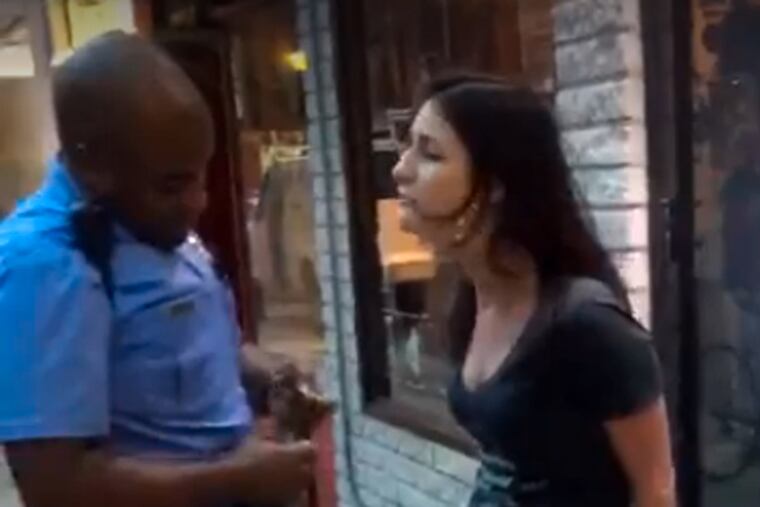Prof: Cursing PHL 17 staffer might be victim of her own eloquence
PHL 17's Colleen Campbell goes on a profane rant but is not much different than the rest of us when it comes to cursing.

After PHL 17 newsroom staffer Colleen Campbell scorched Sansom Street with her cursing assault on a police officer Sunday night, she reportedly said on Facebook that in addition to drinking, she may have been drugged.
It wouldn't be the first time that substances disinhibited a person enough to publicly use language best kept within the home or locker room.
Substances such as drugs or alcohol "disengage the frontal lobe that monitors whether you should or shouldn't do something," said cursing expert Timothy Jay, emeritus professor of psychology at Massachusetts College of Liberal Arts. "This could happen to anybody."
Jay, who has studied cursing for 41 years, said Campbell's profane meltdown reminds him of former Toronto Mayor Rob Ford, who once swore in a drunken rant using a bizarrely authentic Jamaican patois.
Before anyone gets holier than thou out there, Jay said, keep in mind that Campbell's swearing "does not mark her as more profane than the rest of us."
Because as a news person, Campbell presumably knows better than to curse in public, you'd have to assume that a catalyst aided by alcohol caused this – perhaps stress.
"What led up to this?" the humane psychologist in Jay wondered.
Campbell's swearing did a public service of sorts.
That's because there's a myth that the poor and uneducated swear more than the rest of us do, Jay said.
"Saying that swearing is lower class ignores the rich and powerful who do it every day," he said. Jay added that a study he conducted shows that people who are more fluent in English – educated people — actually can generate more swear words than people who didn't attend college.
Jay said, "You can't expect a lower socioeconomic person to swear more than a lawyer or professor" – or TV news staffer.
Cursing was prevalent among a sample of highly conservative, middle-to-upper-income people from the Bible Belt in a study by Shelia Kennison, a psychologist at Oklahoma State University. "I do not think we should assume that only lower social status people curse," she said.
And gender makes little difference.
Back in the 1970s, Jay saw that men swore 60 percent to women's 40 percent. But now it's 50-50, he said.
"Women have more power and use more empowered language," Jay said.
Either that, he added, "or they have more stress."
There are few innocents, he said, when it comes to cursing. By the time kids start school, they know about 40 taboo words, Jay said.
"Children will swear as soon as they start talking," he said.
Using taboo words as verbal intensifiers – steroids for our vocabulary – is a very old phenomenon, noted Muffy Siegel, an English professor at Temple University, where Campbell studied journalism.
She then added what Campbell amply demonstrated: "I think we know that everybody curses at different times."